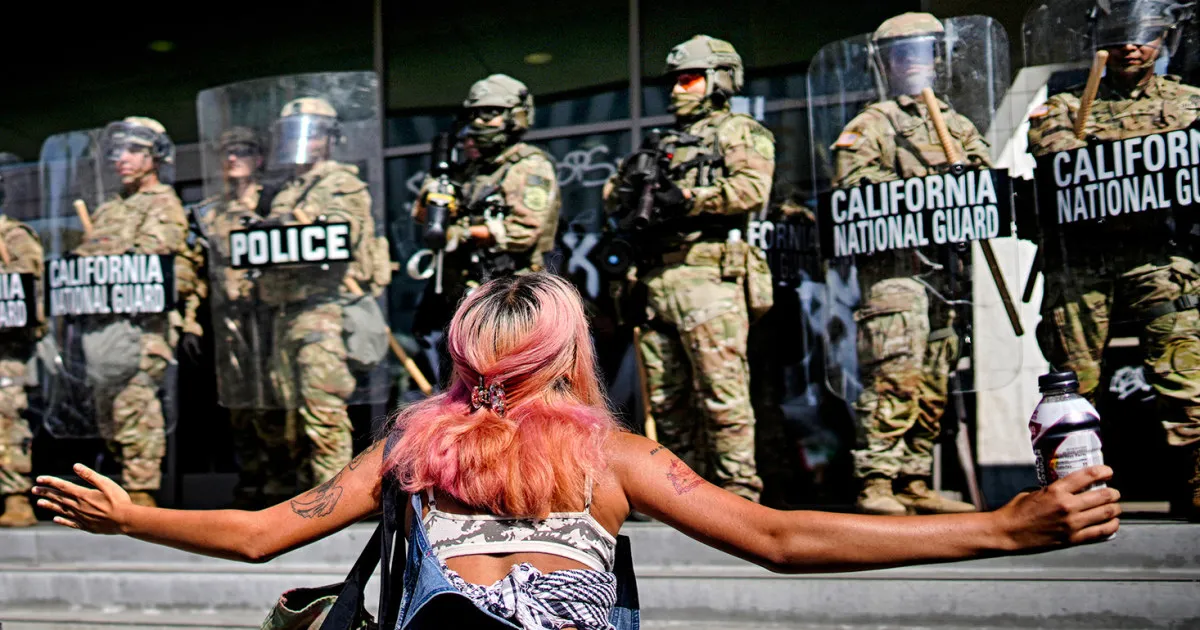
On Monday, the Supreme Court intervened by blocking a federal judge's decision that limited the ability of federal officers to conduct immigration stops in the Los Angeles area. This controversial move drew a sharp response from Justice Sonia Sotomayor, who criticized the ruling and expressed concern for civil liberties. The Supreme Court’s decision to grant an emergency request from the Trump administration effectively puts on hold the ruling made on July 11 by U.S. District Judge Maame Ewusi-Mensah Frimpong.
Justice Sotomayor, the first Hispanic justice on the Supreme Court, voiced her dissent alongside the court's two other liberal justices. She stated, “We should not have to live in a country where the Government can seize anyone who looks Latino, speaks Spanish, and appears to work a low wage job. Rather than stand idly by while our constitutional freedoms are lost, I dissent.” Sotomayor emphasized the importance of the Fourth Amendment, which protects against unlawful searches and seizures, arguing that this protection should extend to everyone, regardless of their appearance or language.
Judge Frimpong had ruled that immigration agents could not stop individuals solely based on their race, ethnicity, language, or the nature of their employment. This lawsuit emerged in response to extensive sweeps conducted by federal agents in Los Angeles, which were part of the administration's stringent immigration policies. Advocacy groups, including the United Farm Workers and the Los Angeles Worker Center Network, argued that these actions violated the Fourth Amendment, which mandates that law enforcement must have reasonable suspicion before detaining individuals suspected of being undocumented immigrants.
The 9th U.S. Circuit Court of Appeals declined to block Frimpong's decision on August 1, leading the Trump administration to appeal to the Supreme Court. Although the brief order from the Supreme Court did not provide detailed reasoning, Justice Brett Kavanaugh issued a separate opinion questioning whether a constitutional violation occurred. He noted that the substantial population of undocumented immigrants in Los Angeles, coupled with their tendency to congregate in specific locations for work, could justify reasonable suspicion for law enforcement officers in many cases.
Solicitor General D. John Sauer argued in court filings that the plaintiffs lacked legal standing and claimed that the ruling was excessively broad, misinterpreting the Fourth Amendment. He contended that the decision could undermine immigration officials' ability to enforce immigration laws in the Los Angeles region. Sauer further stated that while speaking Spanish or working in construction does not inherently create reasonable suspicion, these factors can increase the likelihood of someone being unlawfully present in the United States.
The lawsuit included individual plaintiffs, such as Jorge Hernandez Viramontes, who reported that immigration agents visited his workplace in Orange County multiple times, resulting in his detention. Another plaintiff, Jason Brian Gavidia, recounted being stopped and questioned by immigration agents in Los Angeles County. Both men are U.S. citizens who argued that the government's policies have led to significant intrusions on their liberties.
In her ruling, Judge Frimpong stated that there was likely a violation of the Fourth Amendment due to the government's acknowledgment that roving patrols without reasonable suspicion are unconstitutional. Additionally, she found that individuals detained were often denied access to legal counsel, violating the Fifth Amendment. Frimpong criticized the federal government for suggesting that the issues raised in the case were not occurring, despite substantial evidence to the contrary.
The Trump administration has frequently turned to the Supreme Court to challenge lower court rulings and has achieved success in most cases. The implications of this latest ruling could significantly impact the rights of immigrants and U.S. citizens alike in the context of immigration enforcement in Los Angeles and beyond.